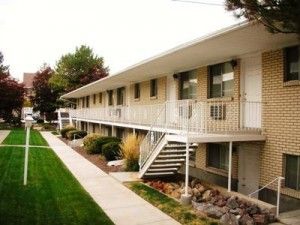If you own rental property, it is important that you understand your rights and duties as a landlord under North Carolina landlord and tenant law. Likewise, if you are a tenant you should also know your rights and duties under landlord and tenant law when renting property in North Carolina. One area that can be particularly difficult and result in many disputes is who is responsible for the maintenance and repair of the rental property.
In order to address the issue of repair and maintenance of rental property, the North Carolina General Assembly passed the North Carolina Residential Rental Agreements Act of 1977. The Act clearly defines the duties of the landlord and the tenant with regard to repairing and maintaining the rental property.
Landlord and Tenant Law – Duties Regarding Maintenance and Repairs
The North Carolina Residential Rental Agreements Act has several sections that outline the rights and duties of both the tenant and the landlord.
Duties of the Tenant
The Act refers to the duties of the tenant under North Carolina’s landlord and tenant law. In addition to paying all rent on time and performing day-to-day maintenance, North Carolina General Statute §42-43(a) states the tenant must:
Keep the premises clean and safe. The tenant must not cause unsafe or unsanitary conditions in the common areas or other areas of the premises that the tenant may use;
Dispose of all garbage, rubbish, ashes, and waste in a clean and safe manner;
Clean the plumbing fixtures in the unit as best as the tenant can, given the condition of the fixtures;
Never negligently or deliberately damage, remove, destroy, or deface any part of the premises or allow any other person to do so;
Comply with all building and housing codes as they pertain to the tenant;
Be responsible for any defacement, damage, or removal of property in the rental unit except for normal wear and tear or damage caused by the landlord, the landlord’s agents, a defective product supplied by the landlord, anyone that is not specifically invited inside the premises by the tenant; or damaged caused by natural disaster; and,
Notify the landlord in writing if the smoke detector needs to be replaced or repaired. Unless the parties agree otherwise, the landlord will replace the batteries in the smoke detector at the beginning of the rental agreement and the tenant will be responsible for replacing the batteries as needed during the term of the rental agreement. However, if the tenant fails to replace the batteries as needed, this failure will not be considered negligence.
Duties of the Landlord
The Act outlines the duties and responsibility of the landlord regarding repair and maintenance of the rental property under North Carolina’s landlord and tenant law. North Carolina General Statute §42-42(a) states that the landlord must:
Comply with all building and housing codes unless the structure is specifically exempt from a said code;
Make all repairs and maintain the premises in a fit and habitable condition;
Maintain all common areas in a safe condition;
Maintain and repair all electrical, plumbing, heating, ventilating, air conditioning, and sanitary systems, including any appliances supplied or required to be supplied by the landlord; and,
Install battery operated or electrical smoke detectors according to the standards of the National Fire Protection Association or the manufacturer’s instructions that meet or exceed the standards of Underwriters’ Laboratories, Inc. for smoke detectors. The landlord must ensure that the smoke detector is in good working order and replace the batteries (if applicable) at the beginning of each rental agreement term. The tenant will responsible for replacing the batteries as needed unless the parties have a written agreement to the contrary. However, failure of the tenant to replace the batteries will not be considered negligence.
The North Carolina Residential Rental Agreements Act has several other provisions that are applicable to the landlord and/or the tenant. It is in your best interest to review your duties, responsibilities, and rights with a qualified landlord-tenant law attorney to ensure that you comply with the terms of the Act and the terms of the rental agreement.
Contact an Experienced Jacksonville Landlord and Tenant Law Attorney
“Attorneys Who Aggressively Protect Your Rights”
Whether you are a landlord or a tenant, the experienced landlord and tenant law attorneys of Welch & Avery can provide you with the answers and legal representation you need to protect your interests regarding rental property. Our attorneys can help you determine if your rights have been violated as a tenant. We also help landlords draft rental agreements that protect their interest in their property.
We represent clients throughout Duplin County, Onslow County and the surrounding communities. If you have questions regarding landlord and tenant law in North Carolina, call our office at (910) 405-8459 or contact us online today for a free case evaluation.

